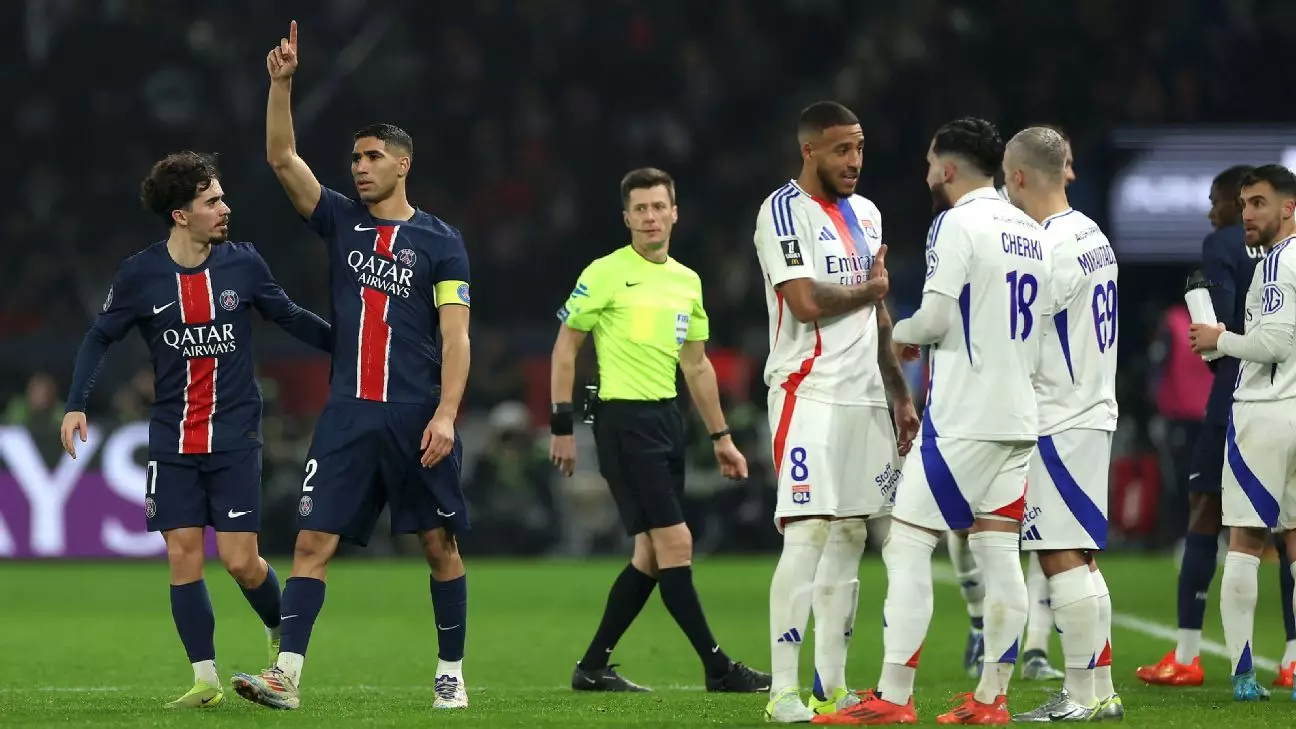The ongoing issues of homophobia within French soccer resurfaced during a recent Ligue 1 match between Paris Saint-Germain (PSG) and Lyon. The match, held at the iconic Parc des Princes, was interrupted due to fans engaging in anti-gay chants. Referee Benoît Bastien paused the game in the 53rd minute while PSG led 2-1, acknowledging the intolerable atmosphere created by the discriminatory remarks. This incident highlights a troubling pattern of behavior that continues to plague French soccer, despite numerous calls for action from authorities and advocacy groups alike.
In the face of such bigotry, PSG’s captain Achraf Hakimi took the initiative to confront the fans where the offensive shouts originated, urging them to cease their hurtful chanting. The stadium promptly displayed a message clarifying that discriminatory language would not be tolerated, emphasizing the potential repercussions that could impact the team adversely. “The match could be stopped or even lost for the club,” the announcement warned, highlighting the serious nature of the offense. Despite this intervention, the practice of homophobic chanting persists, revealing a significant gap in the effectiveness of current measures.
The confrontation with homophobia is further complicated by the broader organizational and governmental responses. Earlier this year, French Interior Minister Bruno Retailleau proposed a more severe approach, suggesting that matches be suspended whenever anti-gay slurs are shouted. This recommendation stems from the belief that existing measures are inadequate and that immediate action is necessary to safeguard the integrity of sporting events. Moreover, a recent campaign launched against such vocal homophobia has drawn attention to the leniency with which prior abuses have been allowed to persist, notably during matches involving clubs like Marseille.
The Historical Context of Inaction
Historically, French soccer authorities have faced significant challenges in implementing effective change. Back in 2019, after witnessing a similar incident between PSG and Marseille, the league initiated an action plan enabling fans to report discriminatory behavior. Yet the problem has not only remained unresolved; reports indicate that the severity of these incidents has, in fact, escalated. Clubs have faced fines and stipulations regarding the closure of specific stands, yet the action taken appears insufficient when matched against the fervent atmosphere of bigotry that emerges regularly during matches.
A Legal Framework Yet to Bear Fruit
Legally, France has positioned itself against homophobia, sanctioning offenders with potential imprisonment and hefty fines. Despite these laws, the ongoing occurrence of discriminatory chants indicates a disconnect between legal stipulations and their enforcement in the tumultuous environment of live matches. While individual cases, such as the misconduct by PSG players who faced a suspended sentence for offensive chanting, were addressed, broader organizational accountability remains lacking.
For French soccer to move past the entrenched culture of homophobia, concerted efforts are needed from all stakeholders involved—fans, clubs, the league, and governmental bodies. Efforts must prioritize leading by example and educating fans about the harmful realities of their words. Only through sustained commitment can the beautiful game be preserved as an inclusive space for all, free from the shadows of discrimination that have lingered far too long.

